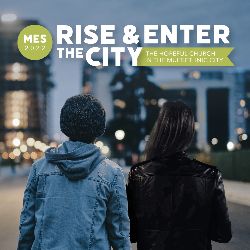Loading...
Start Date
3-5-2022 9:30 AM
End Date
3-5-2022 9:45 AM
Description
Cities have a peculiar relationship with time, space and ritual, all three of which interact with a confessional Lutheran liturgical stance. The fragmented and complex nature of cities serves as an opportunity to construct a framework by which Lutherans can remain identifiably Lutheran while welcoming non-Lutherans into the rich liturgical life of their congregations. This session seeks to situate Lutheran liturgics within an urban context by drawing from theology to sketch the concept of the city in the theological imagination. Eshelman will weave in contemporary Lutheran thinkers along with practical experience from planting a new Lutheran Church—Missouri Synod congregation to highlight important distinctive elements of Lutheran liturgical thought. The consequence of the synthesis is a framework for an indigenized liturgics, a folk-formative dialectic that is simultaneously conscientious of who the liturgy is forming and how it is forming them.
Submission Type
Bible Study; Lecture; Sermon Prep
Submission Topics
World Mission
Submission Audience
Laity; Ministers; Scholars
Submission Cost
Free
Forming God's People in the City: Toward an Urban and Lutheran Liturgical Framework
Cities have a peculiar relationship with time, space and ritual, all three of which interact with a confessional Lutheran liturgical stance. The fragmented and complex nature of cities serves as an opportunity to construct a framework by which Lutherans can remain identifiably Lutheran while welcoming non-Lutherans into the rich liturgical life of their congregations. This session seeks to situate Lutheran liturgics within an urban context by drawing from theology to sketch the concept of the city in the theological imagination. Eshelman will weave in contemporary Lutheran thinkers along with practical experience from planting a new Lutheran Church—Missouri Synod congregation to highlight important distinctive elements of Lutheran liturgical thought. The consequence of the synthesis is a framework for an indigenized liturgics, a folk-formative dialectic that is simultaneously conscientious of who the liturgy is forming and how it is forming them.


